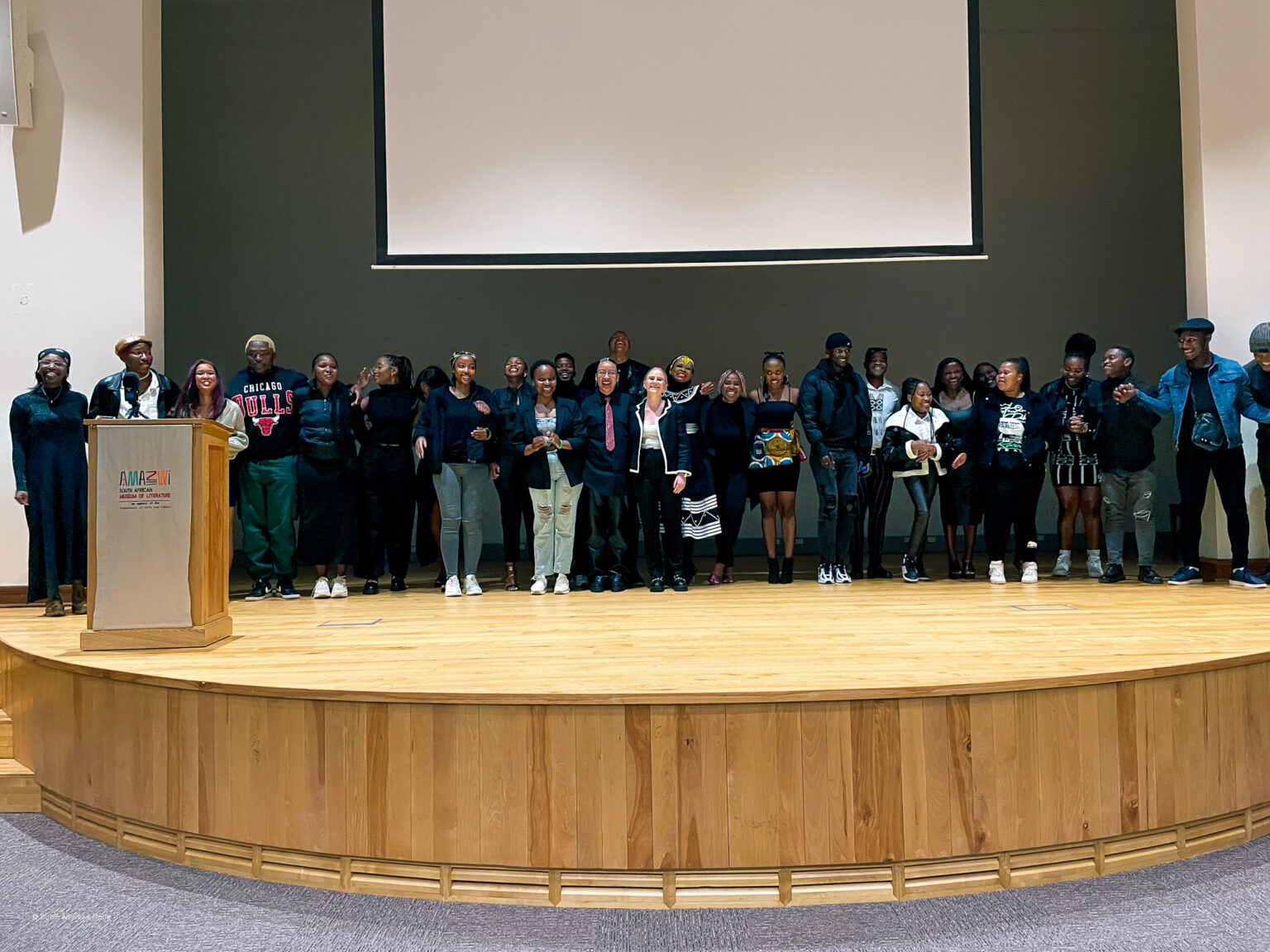By Buhle Andisiwe Made
In an endeavour to commemorate former president Nelson Rolihlahla ‘Madiba’ Mandela and celebrate what would have been Madiba’s 105th birthday, third-year Rhodes University, Film and Television students launched ‘Centennials Reconceive Mandela’ on Mandela Day.
The screening, at the Amazwi South African Museum of Literature auditorium, featured the 10-minute documentary shot in the villages of Qunu and Mvezo in the former Transkei. Madiba was born in Mvezo and later relocated to the village of Qunu as a youngster when his father was appointed chief of the community by the then King of Thembuland, Sabata kaDalindyebo. The centennial generation aimed to replicate Madiba’s leadership qualities by examining his legacy as translated by the people of his home village.
Visiting Fulbright Fellow, Professor Jennifer Thomas of Howard University in the USA gave the keynote address. She said there were parallels between how centennials or Generation Z or even millennials here view Madiba and how the same generation in the US views the US Civil Rights Movement leaders. “It is so important for them to understand the context in which they [Madiba and US Civil Rights leaders] had to work in, and negotiate in, in the absence of social media, TikTok and Instagram and to understand how real diplomacy works, and the impact of their struggle. We would not be had it not been for them regardless of whether we think their methods were good or not”.
Student representative Lance Myburgh opened the event, saying “While it is vital to recognise and shine a light on the man of power that Nelson Mandela was, as a class of media practitioners in the television industry, we believe that visuals speak more than words.” The Centennials embarked on producing a body of work that voiced their genre through their lens.
Centennials Reconceive Mandela “further assimilated the notion of counter-hegemony, a concept that aims to elevate the voices of the ordinary people and which centres around dismantling hegemonic power as an opposition to social and political status quo”, Myburgh added. In that manner, the students went into the villages and created a platform for the residents to reflect openly about their ideas and perceptions of the former Robben Island prisoner, Madiba.
The film reflects on the legacy of the former freedom fighter – Mandela’s impact still lingers across the village of Qunu and Mvezo. Residents share interpretations of what kind of man he was and some elaborate on the work he left behind for the people of the villages. Through the different interactions, one thing is consistent: he was the power serving the people and effecting change where it seemed hard to come by.
Thomas praised the production. “The students did a really solid job giving their perspective on the impact of Nelson Mandela, seen through the eyes of those of those who knew him and some who didn’t, but knew of him, and also how youth today see things somewhat differently than those of us who were closer to that time period saw it”.
Eric Ofei, a student development and support officer described the documentary as authentic and said the students had captured the opinions of those villagers who found that the current levels of poverty in South Africa did not reflect the legacy and work of Mandela. “I’m very glad that the journalism students still captured that part, which gives a proper view of what people are thinking,” said Ofei. He believes that Madiba was one of the few African presidents who served his purpose and did not hog the presidential tenure, but instead shared leadership with others. In terms of modern-day South Africa, Mandela’s legacy is struggling as the leaders of the country are more transactional than humble servants of the people.
The Rhodes University Journalism department also used the event to launch the RU Broadcasting Club, which will help students create their TV portfolios, brush up on their multimedia skills and learn to work with different equipment. The club will be open for membership for third-year up to post-graduate students. For 2023, membership is free, and from the beginning of the 2024 academic year, a membership fee will be introduced and the club will become the RU Broadcasting Society.
The evening was one for celebrating the hard work of the students in the film and television department. Lecturer Thandeka Gqubule-Mbeki commented, “I love my students and I am proud of the work they have produced.”
The documentary captured the essence of filmmaking and related to the audience in an emotional and educational way. The development of their documentary skills can be seen as a great growth step toward influencing audience screen time in their future careers. The storytelling of the third-year class can be conceived as meticulous. Improved audio practices will further enhance their production and propel them into excellence.


